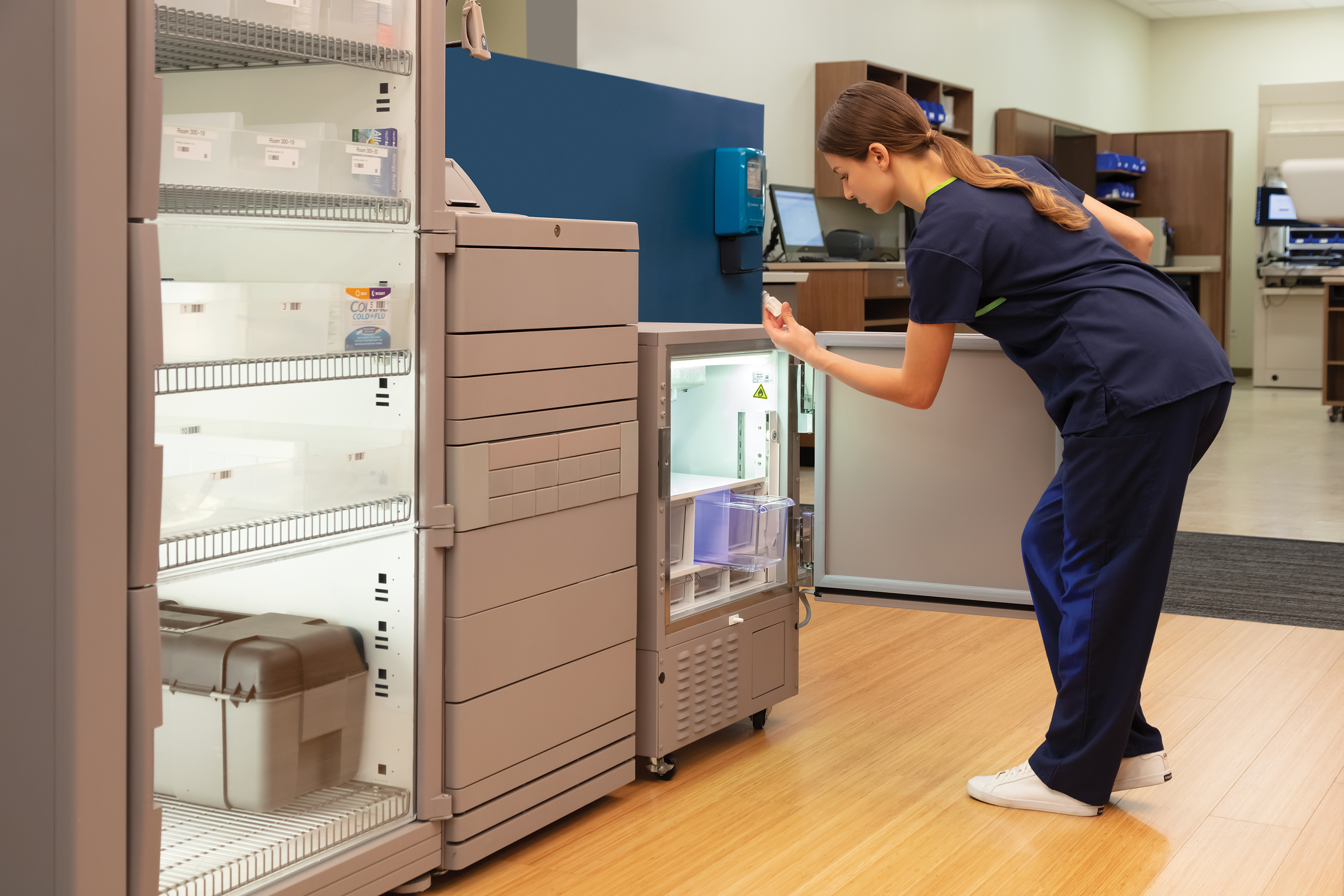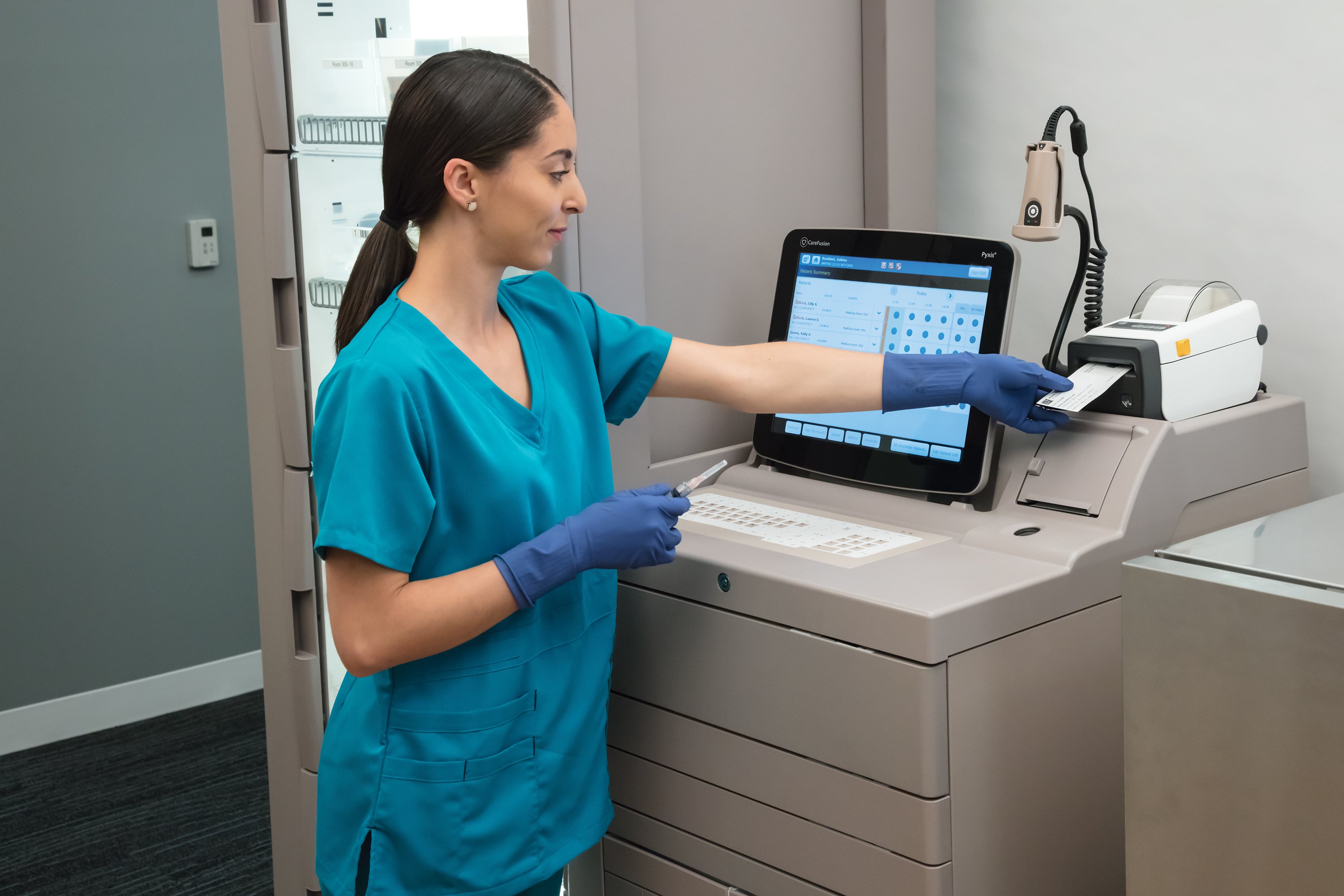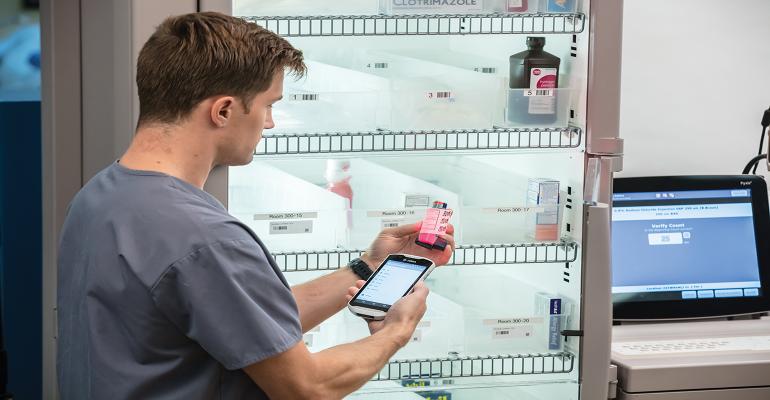In the last edition of Omnia Health Magazine, we discussed oncology medications that are worth more than gold: Is it possible that, right now, there are even more precious medications than these? The answer may very well be yes. Vaccination has rightly been lauded as one of the greatest medical achievements of modern civilisation. Childhood diseases that were commonplace less than a generation ago are now increasingly rare because of vaccines, and one of the greatest examples of the world uniting as one to advance health was the campaign to eradicate smallpox via mass-vaccination. Smallpox is practically forgotten now, despite the fact that the disease blighted humankind for centuries and carried a 30 per cent fatality rate.
The current COVID-19 pandemic, and the race to repeat the achievements of the smallpox campaign in a far shorter timeframe with initially limited supplies of vaccines, requires that we protect, track, utilise absolutely ‘every drop’ of vaccine available to us, and track the recipients. The speed at which these vaccines have come to market also places a responsibility on healthcare providers and vaccination authorities to produce actionable Real World Evidence (RWE), as we deal with virus mutations and variants, heterogenous population responses, and recipients from high-risk patient groups.
Medical devices and associated technology are central to the successful roll-out, maintenance, and monitoring of high-quality vaccination programmes. The first thing to say is the simple volume of syringes and needles required is immense and difficult to comprehend- 1 billion injection devices to support COVID-19 vaccinations, placed end-to-end, would circle the Earth twice. Ramping up of production to meet this challenge requires the supplier to have an extensive history of quality management, and robust manufacturing standards that can allow for increasing production without any sacrifice in quality. Quality, despite massive volumes of production, is key.
As soon as a vaccination clinic or health centre receives a supply of vaccine, the issue of security and storage arises. There are already news reports of an emerging black market for particular COVID-19 vaccines and of organised crime ‘mafias’ looking for opportunities to obtain these scarce resources, as well as direct anti-vaccine sabotage attempts from within organisations. If we look at some of the core vaccines available in the market, we can see how vital judicious temperature control and an effective tracking of thawing, refrigeration, removal from refrigeration, time spent at room temperature, and documented delivery to the patient is.

Distinct, lockable, compartments and access via code or biometric recognition add security for refrigerated vaccine storage.
The Center for Disease Control (CDC) has guidelines for temperature monitoring of refrigerated vaccines, and these recommend that temperature sensors be immersed in bio-safe glycol to mimic a vaccine’s thermal characteristics, and that stand-alone refrigerators with no freezer compartment be used, to preclude the risk of accidental freezing of vaccine vials.
Technology can assist in ensuring safety and maximised usage of all supplies as medical grade ‘intelligent’ refrigerated units integrated to Automated Dispensing Cabinets ensure accurate temperature control and create alerts for any deviation and can track a vaccine vial’s location through simple scanning processes and connected inventory systems. Distinct secure compartments within an integrated-intelligent fridge can also add the required security and required access-privileges via codes or biometric recognition will allow tracking of any discrepancies in count.
The Institute for Safe Medication Practices (ISMP) suggests that vaccine centres and pharmacies carefully consider the timeframe for vaccine stability at room temperature and patient scheduling to minimise waste. A date and timestamp for removal of vials from the refrigerator is extremely valuable for both keeping this safe workflow going and for auditing. Verification of the doses needed per day from the vaccination centre to central cold-chain suppliers on a frequent basis – particularly in the case of those requiring ultra-cold temperatures – is also advocated by ISMP to prevent waste. Medical grade, intelligent and inventory integrated, refrigeration units can also assist in this, as well in the allotment of doses based on footfall trends through the centre.

Fringes integrated into Automated Dispensing Cabinets allow for the production of labels for prefilled syringes before vaccines are dispensed to clinicians.
As the currently available vaccines all require a second dose, this is particularly important for Group Purchasing Organizations (GPO) that service many vaccine distribution centres and need to know regional or national stock levels and have to forecast ‘booster’ vaccinations.
This vaccine usage data, when integrated into Electronic Medical Records (EMR), also has the potential to be a real asset for rapid review of appropriate and prudent usage. The societal value of reducing medication wastage has never been so well represented as it has been by the current crisis. Equally this data, as it can tie vaccine type, lot, vaccination date, and location to patient demographics from the EMR, assists in the gathering of RWE by specialised effectiveness and tracking technology that has already shown an impact on the tracking of Antibiotic Microbial Resistance. This technology and know-how are now being applied to help track and share COVID-19 insights with hospitals and public health agencies across the United States.
ISMP advice on the dispensing of these vaccines is that if pre-filled labelled syringes are being dispensed to clinicians, a check that the needle cap is secure should be made before any batch is dispensed. ISMP also recommends an independent double-check of any dilution process.
We have seen how governments around the world have competed for access to COVID-19 vaccines. Given how potentially fragile an adequate global supply chain of both first and second doses is the highest standards of medication management, utilisation and protection are required in order to ensure these very valuable vaccine resources are shared as effectively and equably as possible. High rates of vaccine waste could potentially lead to extending the pandemic unnecessarily and make our societies vulnerable to continuing waves of infection.


